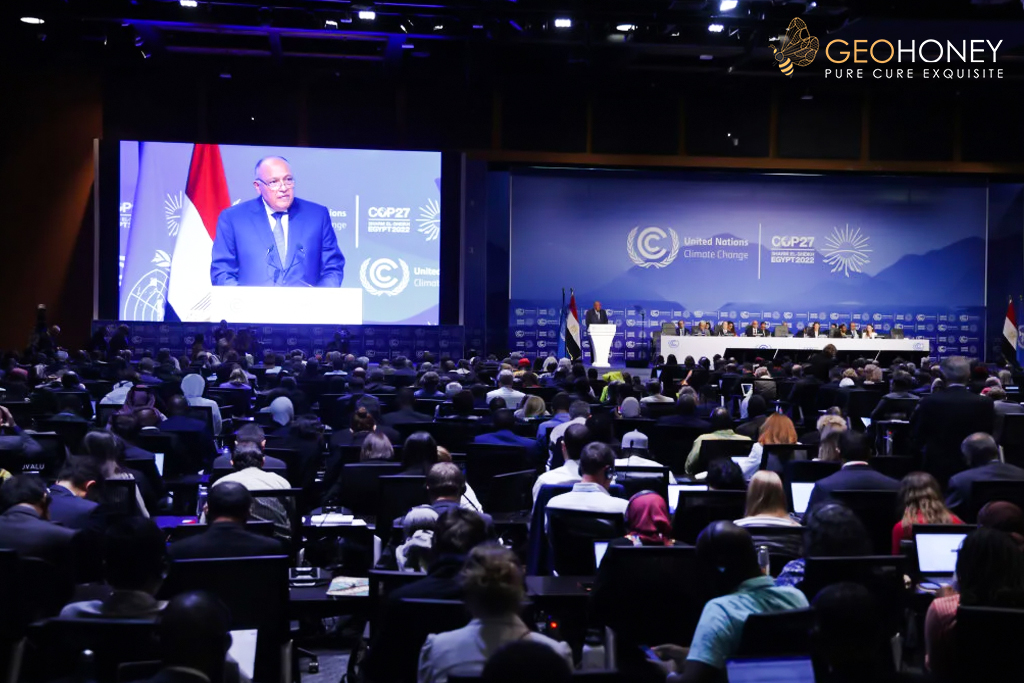- Tokyo: 02:35
- Singapore: 01:35
- Dubai: 21:35
- London: 17:35
- New York: 12:35
Final Decisions taken at COP27, UNFCCC, Egypt

In the closing remarks, Simon Stiell, UNFCCC Executive Secretary said “We have determined a way forward at COP27” on the long conversation related to loss & damage funding”. Moreover, he added that in other positive steps “There are reassurances given to us related to phasing down of fossil fuels use, so now no room is left for backsliding & it is finally happening”.
Moreover, other decisions included paving a way forward on the Nationally Determined Contributions, which are the core of the Paris Agreement and promises by each country to adapt to climate change impacts & reduce overall emissions.
Others included the launch of the first report on Net-zero emissions promises of entities that are non-state based. It was about greenwashing, where the entity or company was misleading the public about doing more to protect the environment than they were doing, and also related to weak pledges for the same. The report was based on providing a roadmap for bringing integrity to net-zero commitments by institutions, regions, cities, and so on.
Furthermore, initiatives like the “Executive Action Plan for Early Warnings for All”, that call for a 3.1 dollars investment till 2027, so that every country receives early warning systems for different natural disasters which are increasing day by day.
A new independent greenhouse gas emissions inventory was created by Climate TRACE Coalition, the focus of which will be to reduce the use of fossil fuels & instead aim on creating sustainable sources of energy. It will contain a tool that combines AI & satellite data to monitor emissions of approx. 70,000 sites over the world.
Another was a “Master Plan for accelerating Decarbonization” in five highlighted sectors including road transport, power, agriculture, hydrogen, & steel. Where the decision to adopt circular economy approaches will be crucial.
Food & Agriculture Systems for Sustainable transformation was another initiative, FAST in short, for improving the quality and quantity of climate finance contributions for transforming food systems and agriculture by 2030.
Other initiatives, and decisions that were announced at COP27, included:
AWARe (Action on Water Adaptation and Resilience Initiatives) – an initiative that will facilitate an inclusive coalition for addressing water-related solutions & challenges in climate change adaptation.
Adaptation Agenda – This outlines around 30 adaptation outcomes, for enhancing resilience for approx. 4 billion people living in extensively climate-vulnerable communities before 2030.
ACMI (African Carbon Market Initiative) – Inaugurated at COP27, which aims towards supporting the growth of carbon credit & its production and helping create jobs in Africa.
The Global Renewables Alliance – It will use the collective member technology for overcoming challenges affecting the global energy transition.
The insurance Adaptation Acceleration Campaign was launched by Race to Resilience, for mobilizing 3,000 insurance companies by COP28 (i.e. equal to about 50% of the market).




What is greenhouse gas emission? Improve air quality and save lives. Slowing climate change could prevent millions of premature deaths.
As an individual, if you are responsible enough, you know how to reduce the GREENHOUSE GAS EMISSION by simply using renewable energy, installing solar lights, planting native gardens, etc. There are simple ways, but we are not just sensitive to doing this.